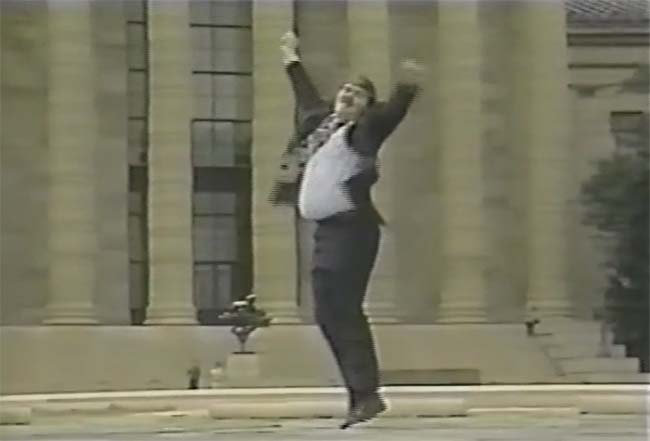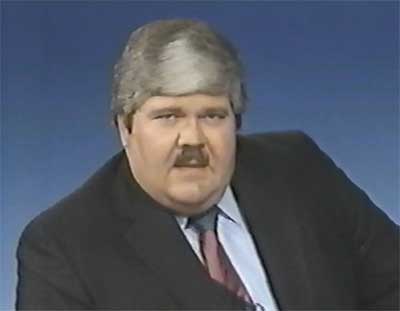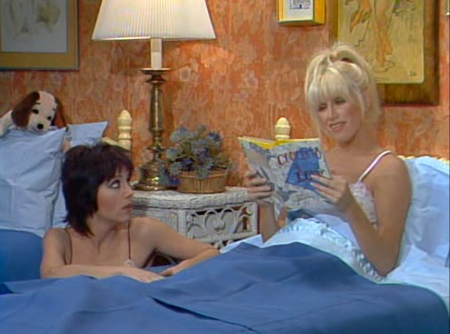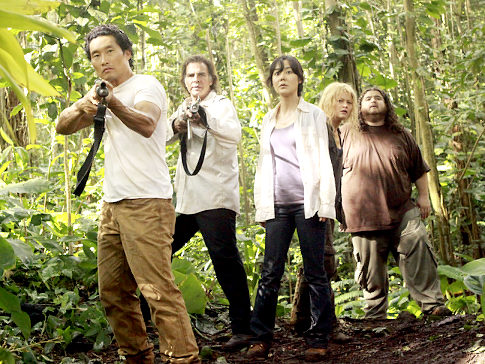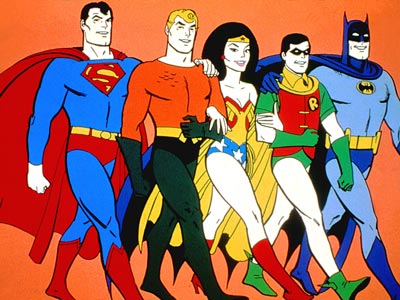A few days ago, I reported the death of Wayne Shannon, whose legacy as a broadcasting innovator and precursor to Jon Stewart, Stephen Colbert, and and Michael Moore had been needlessly overlooked in recent years. Wayne was also a friend. And last night, the cause of Wayne’s death was revealed to be a suicide. Wayne’s body had been found by two hunters in Northern Idaho. His body had been there for many months.
As of Friday morning, the San Francisco TV station (KRON) where Wayne worked for many years, has not acknowledged Wayne Shannon’s death in any way. Last night, I contacted KRON by telephone. I spoke with Bonnie Hitch, who was kind and who offered me a few minutes of her time. Ms. Hitch told me that KRON still hadn’t decided on whether or not it would recognize Wayne Shannon, but that they had learned of his death. KRON had not been aware of Wayne’s suicide.
I also asked Ms. Hitch about how well the KRON news archives were preserved. What was the state of Wayne’s numerous commentaries? His segments in the field? His body of work? She informed me that there wasn’t even an archivist employed at KRON these days. “It’s a very different news station,” said Ms. Hitch. KRON culture had changed. Ms. Hitch wasn’t even sure that the airchecks had been preserved. She told me that she would put me in touch with the person in charge of the news archives, and it is my hope to contact someone at KRON who is even remotely interested in preserving KRON’s long legacy as a major news station.
In his final years, Wayne had assembled a disc containing a small handful of his work. Was this all he had? Unfortunately it was. This disc was all that remained of his considerable work. “It took me months to pile through boxes and boxes of old tapes,” Wayne had written to me. “You got the best of what was available…and some of that — as you have doubtless noticed — is well below par.”
Shortly after talking with Ms. Hitch, I went through my files and located Wayne’s disc. It contained this note:
Yo Ed:
A few weeks before Noel Coward died he held an intimate soiree at his home during which, by all accounts, he performed for the very last time.
Those in attendance, if memory serves, were Lunt and Fontanne, Oliver and Leigh, Oscar Wilde, Jascha Heifitz, the Raymond Masseys and the Rex Harrisons, the latter naming their first born son after Noel.
We are assured that it was an exquisitely memorable night of much wine and laughter and tears born of same, along with a game that developed whereby participants challenged their memories by trying to match some of the more obscure lines of dialogue from his plays — with the titles of his many Broadway and Piccadilly triumphs.
This was followed by a medley on the piano of Coward’s many hit songs, accompanied by Heifitz, which naturally concluded with his immortal, “Mad Dogs and Englishmen.”
I am, of course, no Noel Coward and, unfortunately, have more years to live than I doubtless deserve. However, I wanted you to know that to me…you are not only to be numbered among the “luminaries” he had about him that evening those many, many decades ago…but, had I been able to do so…you would have been invited to such a gathering — though you may very well have had the good sense not to attend or, perhaps, admit to it later.
However, if you had done so, you too would have seen my final performance — from virtually my first words ever on American TV — to undeniably my last, “Yahoo!”
I cannot accept Wayne’s work falling into obscurity. I cannot accept his self-deprecatory nature refusing to understand, even in this note, that people loved and respected what he did. And I cannot accept his work not getting its proper due.
So I have uploaded nearly all of the video I have so that people can see how Wayne was ahead of his time. The twenty-one segment salute below reveals that Wayne, who won six Emmys for his work, was a wily reporter, a witty commentator, a skilled performer, a gleeful satirist, and a man who was very good at talking with people.
Star Wars: This is one of Wayne’s earliest television appearances, in which he talks with Mark Hamill, Harrison Ford, and Carrie Fisher. He even asks Carrie for a kiss, a move that would be unthinkable in today’s junket climate.
Rocks (1980): This is a great example of the muckraking multipart series Wayne was known for during his days in Detroit. (Indeed, as I learned in a 2008 radio interview I conducted with Wayne, many of Wayne’s pioneering concepts during these days would be stolen by Michael Moore and used in Roger & Me.) Wayne fearlessly took on many of the auto manufacturers and was run out of Detroit for this (despite the fact that his segments greatly improved the evening news ratings). And the “All by Myself” montage where Wayne abandons his “rock” on the freeway and rollerskates away is an unusual break from the hard journalism that local television news was then known for.
Lemons: In Philadelphia, Shannon was known as the “TV 2 Troubleshooter.” His coverage, as we learn here, could be hilariously epic (in this case, the segment above is “part three of his ten part series on lemons,” as Robbie Timmons introduces) — almost as if he was working on one giant documentary film split into neat segments for the evening news. Wayne’s ability to combine consumer advocacy with comedy is in great form here, especially with the concluding Rocky homage.
Hedgehogs: This “TV 2 Troubleshooter” segment sees Wayne fleshing out his satirical journalism. There’s the opening sound gag, along with some folksy banter with a stamp collector (“Ever been took?”).
The Box Top Rebellion: In this segment on coupon clippers (which contains some eerie parallels to post-2008 economic life), we see that Wayne was very keen on highly theatrical introduction sequences. But he was also very good about learning how a system worked, as seen from the fascinating clips inside a coupon clearing house (“where old coupons go for that big redemption in the sky”).
Magic Nails: Not only do we get a quick glimpse of a young Maury Povich, but we see Wayne taking on “Magic Nails” — a dangerous toy manufactured at a Burger King restaurant. Wayne’s journalistic rigor is on display. He talks with pediatrician Alan Freedman and updates the story with some shoe leather reporting.
The Vent People: I don’t know if the success of Wayne’s consumer advocacy had Channel 3 assigning Wayne to more hard reporting. Perhaps they didn’t quite know what to do with him. But this segment also shows that Wayne was a good journalist. He reveals efforts to uncover how the homeless sleep on the steam vents at night, along with the reasons why others aren’t allowed to help the vent people.
Wayne-Bo and Tom: The first part of this clip is rather baffling. It features “Wayne-Bo” entertaining kids and talking with Eagles quarterback Ron Jaworski. Was this a bona-fide children’s show hosted by Wayne which aired in Philadelphia? The second part features a clip of Tom Snyder extolling Wayne at the end for an episode of The Tomorrow Show, which Wayne made an appearance on. (Note to self: A trip to Paley is in order.)
Santa and Thermatron: The Santa bit is from a bizarre 1981 program that Wayne did called Santa and Son. I have no idea if it even aired anywhere. Then there’s a “Thinking Out Loud” segment on the Thermatron, a precursor to the commentaries that Wayne would be known for during his KRON days.
KRON Clips: Wayne, now at Channel 4, talks with Jonathan Winters. There are three additional segments: (1) a Wayne commentary on how laser beams are being used to cut through clogged arteries (and how Wayne has sought “a revisionist nutritionist”), (2) a closing credits monologue of Wayne on the road, and (3) a Wayne commentary on how to celebrate California adventure (with some inside dirt about then Carmel Mayor Clint Eastwood).
The Merv Griffin Show: Merv Griffin, who lived in Monterey, was a Wayne Shannon fan and invited Wayne to appear on his program. Wayne reveals the trouble he got into for suggesting that dumping atomic waste into the ocean might be a possible solution. “I guess you don’t hear that viewpoint that often.” “Why would you advocate that?” asks Merv. “Well,” replies Wayne, “because everybody else isn’t.”
Claim to Fame Promo: Wayne appeared on another locally produced KRON show called Claim to Fame, in which an assembled panel tried to guess who the person was based on their vocation. Wayne was one of the regulars, along with Ann Jones, Charlie Haas, and Sylvia Brown (later with an E). This promo for the show features Wayne prominently. There is also a ten second clip from the show attached.
Claim to Fame: Here’s a longer part of Claim to Fame, which features a more spartan set than the one with the FAME lights. (Budget cuts at KRON?)
Bay Area Minute: This short KRON segment features Wayne rhapsodizing about the Bay Bridge.
Three KRON Commentaries: In these collected clips, Wayne offers a commentary on Tanzanian chimpanzees getting high on leaves, another commentary on pesticides, and a third commentary on Fleet Week.
CNBC: In these clips from his CNBC days (featuring some charmingly retro graphics), Wayne provides a commentary on Norplant, sits patiently at the ACE Awards (for which he is nominated), co-anchors a Real Estate Report, and interviews Ken Hakuta, the inventor of the Wacky Wall Walker (and self-styled “Dr. Fad”), with absurd results.
TV 25 Vancouver: In this TV 25 Vancouver segment, Wayne investigates a post office branch in Vancouver, Washington, discovering how postal workers toil and the impact of a holiday package influx.
TV 49 Portland: In the first clip from Wayne’s TV 49 Portland days, Wayne probes Nick’s Famous Coney Island, talks with owner Frank Nudo, and contends with hot dogs. The second clip features Wayne’s movie reviews of Mad Love, Judge Dredd, and Crimson Tide>
TV 6 Portland: In this clip from TV 6 Portland, Wayne goes out in search of white deer in Redland.
Ask the Weather Guru: This interview with Wayne Shannon (just after his television days) has Wayne coming out as the “Ask the Weather Guru” man at Yahoo. He attempts to explain what an occluded front is. But I can’t help but focus on just how small his apartment is at this time.
The Memorial Wall: Wayne’s last appearance on television, from August 2011. He was in Idaho, visiting the Vietnam Memorial Moving Wall and wanting to know if three people from his hometown of Moses Lake, Washington had been killed during the war. He didn’t see their names. Months later, he would walk into the woods and never come out.
